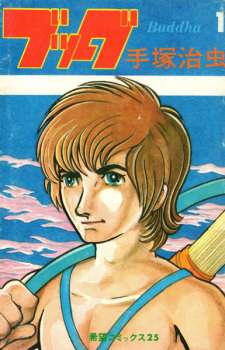Alternative TitlesJapanese: ブッダ More titlesInformationType: Manga
Volumes: 14
Chapters: 66
Status: Finished
Published: Sep 1972 to Nov 1983
Theme:
Historical
Serialization:
Comic Tom (Monthly) Authors:
Tezuka, Osamu (Story & Art) Statistics Ranked: #3452 2 based on the top manga page. Please note that 'R18+' titles are excluded. Popularity: #1210
Members: 17,013
Favorites: 418 Available AtResources | Recommendations
|










